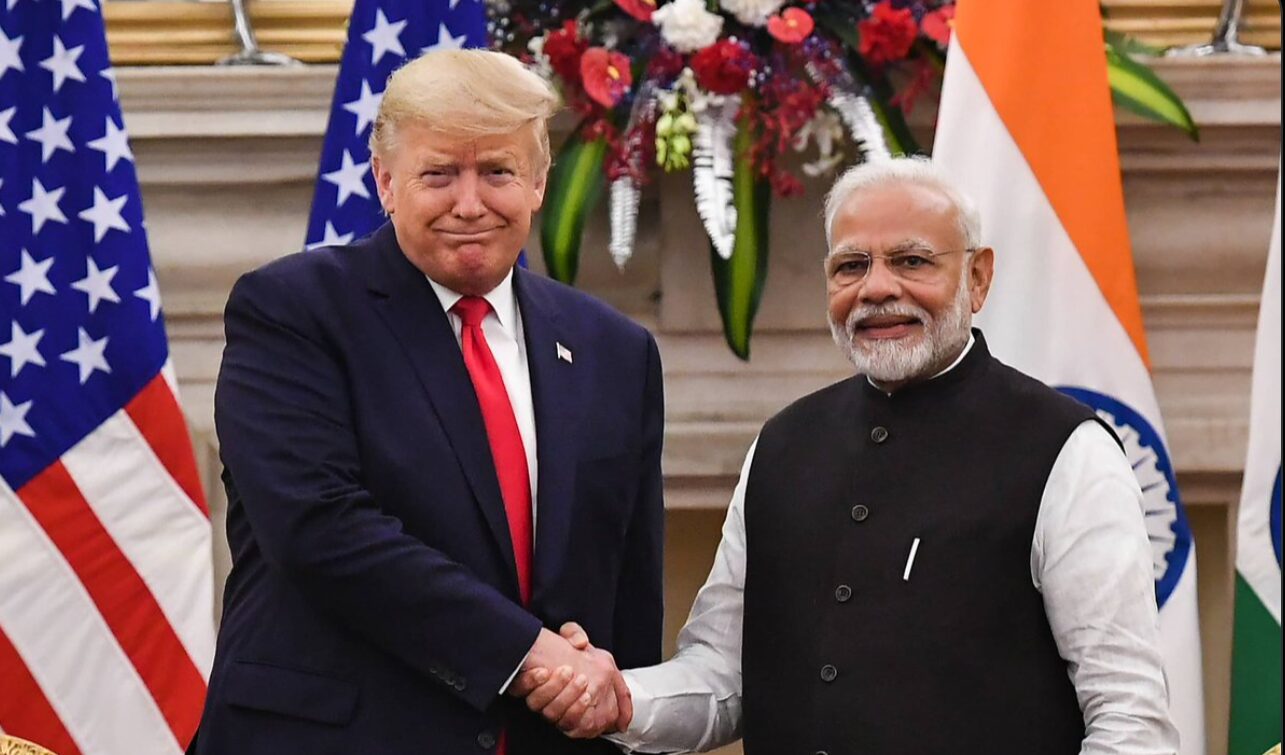India to take back 18,000 of its citizens who are living illegally in the United States
In a significant development on the global immigration front, the Indian government has announced plans to take back approximately 18,000 of its citizens currently residing in the United States without legal status. This decision follows a series of diplomatic negotiations and reflects a growing trend of countries working with the U.S. to address the issue of illegal immigration. As the Indian government prepares to facilitate the repatriation process, this move has sparked a broader conversation about immigration policies, bilateral relations, and the human impact of such deportations.
India’s decision to reclaim its nationals living illegally in the U.S. is expected to have widespread implications, both for the individuals involved and for the broader landscape of immigration enforcement. With the Trump administration’s ongoing efforts to crack down on illegal immigration, this move comes at a time when immigration policies in the United States are under intense scrutiny.
The Context Behind India’s Decision
The Indian government’s decision is largely in response to pressure from the United States, which has been urging foreign governments to accept the return of their nationals who are living in the U.S. without legal authorization. As part of the Trump administration’s hardline immigration stance, the U.S. has been engaged in a variety of measures aimed at reducing the number of undocumented immigrants, including deportations and the strengthening of border security.
Over the years, the United States has deported thousands of undocumented immigrants, and countries around the world have been faced with the challenge of reintegrating their citizens who have lived abroad for extended periods of time. For India, this is not the first time it has been called upon to take back its nationals, but the scale of this latest repatriation effort has raised significant concerns both domestically and in the United States.
The Impact on the 18,000 Indian Nationals
The repatriation of 18,000 Indian nationals will have profound consequences for the individuals involved. Many of these individuals have lived in the United States for years, some for decades, and have established families, careers, and lives in the country. The news of their potential deportation has caused anxiety within these communities, particularly for those who have built their lives around the American dream.
For some, the prospect of returning to India is not as simple as packing their bags and leaving. Many undocumented immigrants in the U.S. face the challenge of reintegration in their home country. After spending years or even decades in the U.S., the cultural, social, and economic realities of life in India may be vastly different from what they have become accustomed to in America. For some, returning to India may mean starting over in a country where they may not have family ties or employment opportunities.
Additionally, the deportation process itself can be traumatic, with many individuals being separated from their families or facing legal and financial hurdles upon their return. While the Indian government is expected to provide assistance in the reintegration process, it is unclear what kind of support will be available for the deported citizens, especially those who have not lived in India for years.
The Role of Diplomatic Relations Between India and the U.S.
The decision for India to take back its citizens living illegally in the U.S. is not just an immigration issue; it is also deeply rooted in the diplomatic relations between the two countries. India and the United States have long had a robust partnership, with cooperation in trade, defense, and technology. Immigration is one of the areas that has sometimes strained bilateral relations, particularly in recent years as the U.S. government has adopted stricter immigration enforcement policies.
By agreeing to take back 18,000 of its nationals, India is demonstrating its willingness to cooperate with the United States on immigration matters. However, this move may also raise questions within India about the country’s own immigration policies and the social and economic challenges of reintegrating thousands of returning citizens. There are concerns about the potential impact on India’s job market and social services, as many of the individuals being deported have been away from the country for extended periods and may not have the necessary skills to re-enter the Indian workforce seamlessly.
Furthermore, the Indian government’s decision could have a lasting impact on its relationship with the U.S. India’s cooperation on immigration enforcement may signal to the United States that it is committed to helping manage the global flow of immigrants. This could potentially pave the way for future agreements on immigration and other related issues, such as work visas and temporary labor programs.
Economic and Social Ramifications for India
The repatriation of thousands of Indian nationals could have both positive and negative economic impacts on India. On one hand, it could bring back valuable skills and knowledge from individuals who have worked in the United States in various industries, from technology and healthcare to agriculture and education. These returning citizens could contribute to India’s workforce and potentially bring innovative ideas and business practices with them.
On the other hand, reintegrating 18,000 individuals into the Indian economy could present challenges. Many of the deported citizens may have been employed in sectors in the U.S. where they had gained specialized skills. However, the Indian job market may not have sufficient opportunities for them, particularly in the case of individuals who are older or have limited experience in India’s job market.
Additionally, the social implications of large-scale deportations should not be overlooked. Families may be affected, particularly those who have U.S.-born children who are left behind or forced to relocate. The emotional and psychological toll on individuals who have to leave behind established lives in the U.S. cannot be underestimated.
The Global Conversation on Immigration and Deportation
India’s decision to take back 18,000 of its citizens raises important questions about global immigration policies and the ethics of deportation. As the U.S. continues to enforce stricter immigration laws, many countries are finding themselves caught in the middle, balancing the need to protect their own citizens with the pressures from the U.S. to address illegal immigration.
The issue of illegal immigration is one that transcends borders, and India’s cooperation with the United States may serve as a case study for how countries can navigate these complex issues. At the heart of this debate is the question of fairness: how should nations handle the repatriation of their nationals who have been living illegally abroad? What kind of support should be provided to deported individuals, and how can countries ensure that they are treated humanely throughout the process?
Looking Ahead: Immigration Policies and the Future of Deportation
As India moves forward with repatriating its citizens from the U.S., the global conversation about immigration and deportation is likely to intensify. Immigration advocates continue to call for more compassionate policies that prioritize family reunification and the protection of human rights. Meanwhile, countries like the U.S. argue that tough immigration enforcement is necessary to maintain national security and ensure that laws are respected.
The case of India’s 18,000 deported citizens may be just one chapter in a larger, ongoing story about the challenges and complexities of immigration in the modern world. How this issue is addressed in the coming years will shape the future of global immigration policies and the relationships between nations involved in these complex and often contentious matters.

















Post Comment